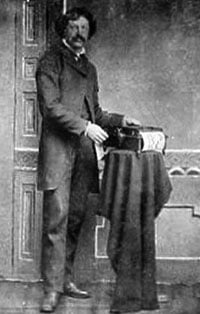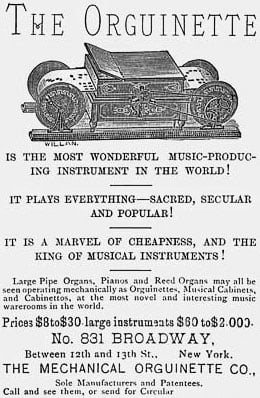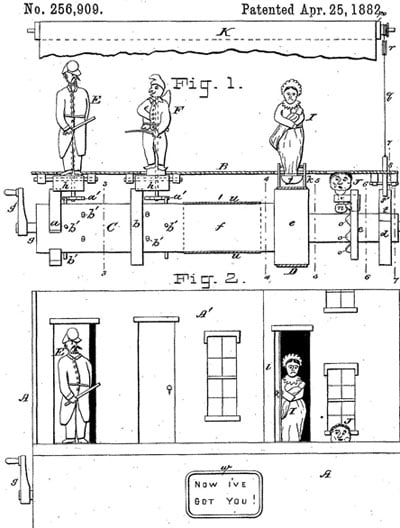
Who Was Newman Marshman?
Newman Marshman was the inventor of the modern typewriter. As an African-American inventor, Marshman’s achievement is even more remarkable when one considers the natural obstacles that he had to face in the course of obtaining his education and assembling the expertise necessary to create such a groundbreaking device.
Early Life
Marshman was born on April 7, 1847, in New York City. Marshman was born to free blacks Benjamin and Rachel Newman Marshman. Benjamin worked in real estate in New York City.
Quick Facts
- Full Name
- Newman Russel Marshman
- Birth
- December 19, 1846
- Death
- November 2, 1930
- Net Worth
- NA
- Nationality
- American
- Place of Birth
- New York, NY
- Fields of Expertise
- [“Inventor”,”Music”,”Mechanics”]
- Institutions
- None
- Contributions
- Inventor of the Sun index typewriter, African American inventor
As a young child, he immediately showed a proclivity to creating inventions, designing a variety of new toys, such as dolls. Indeed, inventions would be what he would be best known for, as he would spend most of his life serving as an inventor and trying to create new products.
Marshman was only fourteen when the Civil War broke out, but he served honorably in the Union army. Upon the conclusion of the war, Marshman returned to his family home in New York.
Marshman’s achievements are even more notable when one considers his relative lack of a formal education. Although he likely had access to at least primary school, no records exist of a more formal education for Marshman beyond this. As such, it is assumed by most who studied his life that Marshman did not receive a formal academic education. Despite this, Marshman developed extensive mechanical creativity and an entrepreneurial spirit that led him to invent many items over the course of his career.
Career
Clerk
After fighting with the Union during the American Civil War, Marshman began his civilian career as a clerk, where he worked to support himself and his family.
Professor of Music & Inventor
One of Marshman’s early passions was music, and he worked for some time as a professor of music for college students.
Inventor of the Sun Index Typewriter
Marshman spent the vast majority of his life working as an inventor, attempting to create new products and turn them into commercial successes. From 1877-1930, Marshman attempted to invent a variety of new products. However, his greatest success was unquestionably the refinement of the typewriter.
On April 7, 1885, Marshman was awarded a U.S. Patent for his invention. This would be one of many patents that Marshman would acquire over the course of his extensive career as an inventor. He sold the device with Lee Burridge out of their offices, located on 319 Broadway in New York city.
Other Inventions
Marshman ultimately came to hold dozens of patents for a slew of inventions. These included a variety of musical instruments, carrying bags, adding machines, children’s toys, and more.
His best non-typewriter invention is a type of orguinettes. This is a small, portable organ that could be carried and played at various locations. It would be played by inserting paper into the device. A crank would turn, and songs would then be played from the device itself. The devices were very popular at the time and could be used for a variety of services. They were marketed as making music available for mass production and for any number of musical genres.
Marshman developed multiple orguinettes, including a flute orguinette.
One of Marshman’s main inventor partners was Lee Burridge. Burridge and Marshman began to work together in the early 1880s, first developing children’s toys.

Baptist Home for the Aged
Marshman was unemployed at the age of 69. Despite the success of his Sun dial typewriter, he had no financial means to speak of and was forced to continue to work well into old age.
Indeed, one of the deep tragedies of Marshman’s illustrious career is that he never saw financial success for his inventions, including the typewriter. Marshman would be forced to work nearly until his death. At the age of 83, just before he died, Marshman was working as a servant for the Baptist Home for the Aged in New York City.
What Did Newman Marshman Invent?
Sun Index Typewriter
Marshman was one of the key inventors behind the creation of the Sun Index Typewriter. Burridge and Marshman would work together to create the first Sun index typewriter. The duo applied for a patent for this device in 1884 and were granted this patent in 1885.
The Sun Index Typewriter was the first typewriter that had a straight type bar. This type bar gave the device a “handle” appearance on its top. A sliding device would be used in order to select letters or characters. Users would then press down on the type bar, thus inserting the letter into the paper below. There was no ink, and the first versions of the device would actually create small, metallic letters. Additionally, there is no lowercase: All letters on the device were actually in uppercase. The device also came with numbers and punctuation marks, so people could actually write full-fledged letters on the device.
The first devices sold for a very expensive $12, although the devices were small and portable.
The device sold well and kept Marshman and Burridge busy with sales. It would become the most successful invention of Marshman’s career.
Today, Sun index typewriters are antiques that are available in many antique homes. Depending on their condition, they can be highly valuable, selling for upwards of $500.
Other Typewriter Designs
Building upon the success of the Sun index, Marshman and Burridge would ultimately continue to refine their device. In 1890, they were awarded patents for other forms of the Sun index, and these new devices had some improvements in both appearance and functionality.
The Sun Index would prove to be an important point in the invention of the typewriter and other writing devices. Later designs would build upon the design, adding new and more efficient mechanisms to the typing facet of the device.
However, the Sun Index typewriter would be the last commercially successful version of the typewriter that Marshman and Burridge would invent.
Orguinette
The various types of orguinette’s that Marshman invented were also a significant part of his legacy. He invented reed-based machines that would enable users to play music via the rolls or disks that were inserted into the device.
Other Inventions
As noted above, Marshman would ultimately create dozens of patents on a slew of devices, including toys and adding machines. However, none would ever prove as popular, memorable, or long-lasting as the Sun index typewriter.

Newman Marshman: Marriage, Divorce, Children and Personal Life
Net Worth
Marshman’s net worth is not known, but when he died, he was described as penniless. He never saw commercial wealth as a result of his work on the Sun index typewriter, nor from any of his other inventions.
Marriage
Newman Marshman married his wife, Josephine Marshman, in 1853.
Children & Tragedy
Marshman and his wife had three children. Tragically, all three children died as infants. As such, the family had no survivors.
Death
Marshman died on November 2, 1930. He was 83 upon his death and is buried in Poughkeepsie, New York, at Poughkeepsie Rural Cemetery.
Awards & Achievements
Inventor of the Typewriter
There is no question that Marshman is best known as the inventor of the typewriter, then known as the Typewriting Machine.
African American Inventor
It must also be noted that Marshman was one of the most prominent inventors of the 19th century, although one of the lesser-known ones. According to many published reports, African Americans of the 19th century were responsible for a wide variety of inventions, including cotton seed planters, telegraph machines, and more. Many of these inventors were often robbed of credit and the profit that would have been reaped from these inventions, although a reexamination of history is helping to ensure that these men received the credit that they deserved for their inventions. As such, Marshman can rightfully take his place in the pantheon of 19th century inventors whose inventions created much of the foundation for modern-day commerce.
